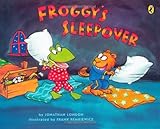Can Sea Cucumbers Help Clean Up Fish Farms?
Language
Reading Level
Listen to Article
Alignment

Fish farming is a form of aquaculture in which fish are raised in enclosures to be sold as food. They account for over half of the world's fish supply and are vital for meeting the needs of an ever-growing human population. However, fish farms currently face a big challenge — waste management.
The uneaten food and waste released by the thousands of marine creatures confined to small spaces often accumulate to harmful levels. Each year, millions of fish die of bacterial diseases. Also, phosphorous and nitrogen released from the feces can result in algae blooms that deplete the oxygen in the water. This can smother the fish and kill them. Fish farms currently solve these issues with the help of recirculating systems that filter the water and dispose of the waste. However, they are expensive to install and difficult to maintain.
Now, some fish farms are turning to sea cucumbers for help. The bottom-dwellers are often called the ocean's "vacuum cleaners." They feed on microscopic animals, algae, and organic waste from the seabed. Even better, the by-product of the sand the creature ingests, includes calcium carbonate. The chemical compound helps support the growth of coral reefs.
Sea cucumbers are considered a delicacy in some parts of the world. Once their numbers grow, they could also serve as an extra revenue source for fish farms.

Adding sea cucumbers to fish farms is part of a broader movement to transform them into balanced and sustainable ecosystems. Experts believe it can be achieved by cultivating multiple species of marine animals from various levels of the food chain.
"You're trying to mimic a natural environment," says marine researcher Chris Pearce. "So marine species are just doing what they do naturally out in the wild. But when you combine them with other species, what they're doing is creating a service for the ecosystem."
Resources: newatlas.com, oceanservice.noaa.gov, e360.yale.edu

Get the Workbook for this article!
Workbook contains: Article, Reading Comprehension, Critical Thinking Questions, Vocabulary in Context (+ answers), Multiple Choice Quiz (+ answers), Parts of Speech Quiz (+ answers), Vocabulary Game (+ answers)Cite Article
Learn Keywords in this Article
21 Comments
- miles_milkshakeover 1 yearthis is weird but definitely cool
- cutepinkloverover 1 yearOMG this is so cool
- lovehistoyover 1 yearOh my gosh this is coool
- 194530over 1 yearCool
- 29zabrahamover 1 yearThat is interesting!
- turtle124over 1 yearI LOVE SEA CUCUMBERS!!!! SO CUTE!!!!! SEA CUCUMBER : BLOBS IN THE SEA!!! blobfish are better tho
- slytherin4lifeover 1 yearI feel the EXACT same way.
- fr-its-kadyover 1 yearthats so cool
- jselvadurai22eiover 1 yearWow
- purplepearlsover 1 yearI'm vegetarian. I feel bad for the fish.
- blackandpinkgrlover 1 yearSame but i was born that way but I still feel bad for the fish
- firesover 1 yearPretty cool




